CONTENTS
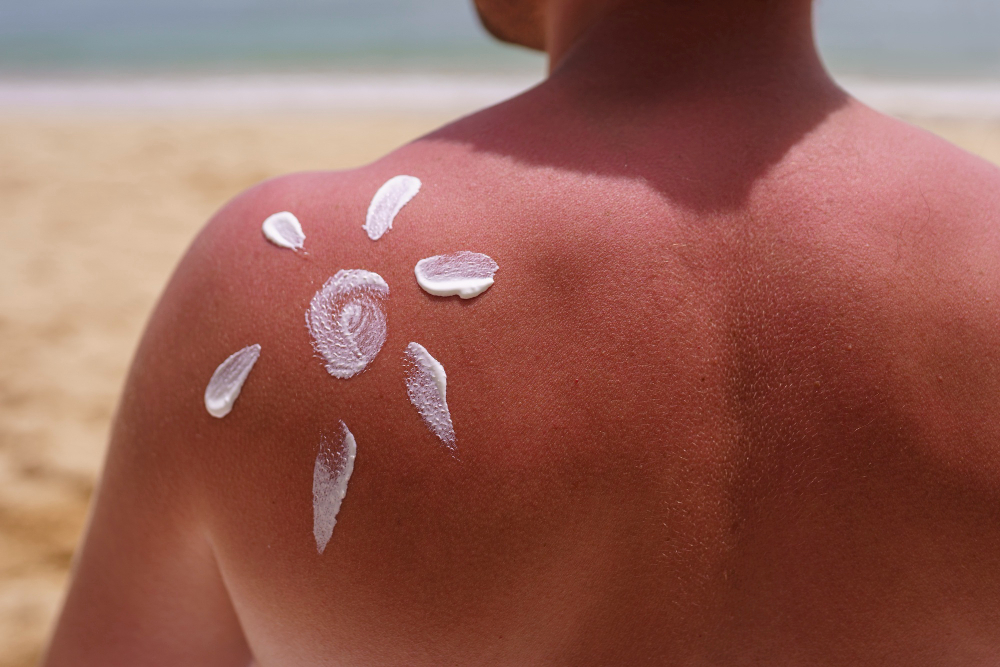
Effective Sun Poisoning Treatment Methods
Sun poisoning, which is also called severe sunburn, can do more than make you feel bad for a little while. Being in the sun for a long time and getting too much of its harmful rays can hurt your skin, cause pain, and other not-good things.
This guide will help you know what to do for sun poisoning treatment. We’ll talk about what signs and reasons there are and look at different ways to treat it and stop it from happening again.
Continue reading this article.
What is Sun Poisoning?
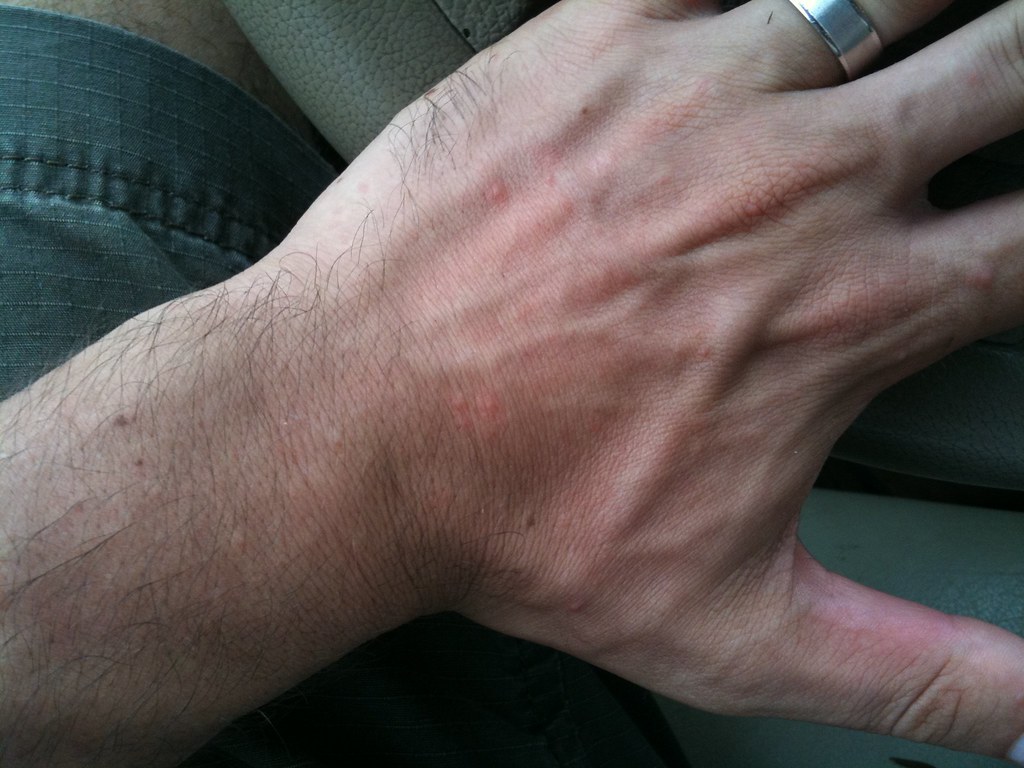
Sun poisoning, which doctors call polymorphic light eruption (PLE), is a bad type of sunburn that’s worse than the usual redness and discomfort from being in the sun.
It happens when your skin doesn’t like the UV rays from the sun and gets mad, making it all red and sore. This problem is known for making painful blisters, itchiness, and causing your skin to peel. It’s like severe sunburns that go deep.
Sun Poisoning Symptoms
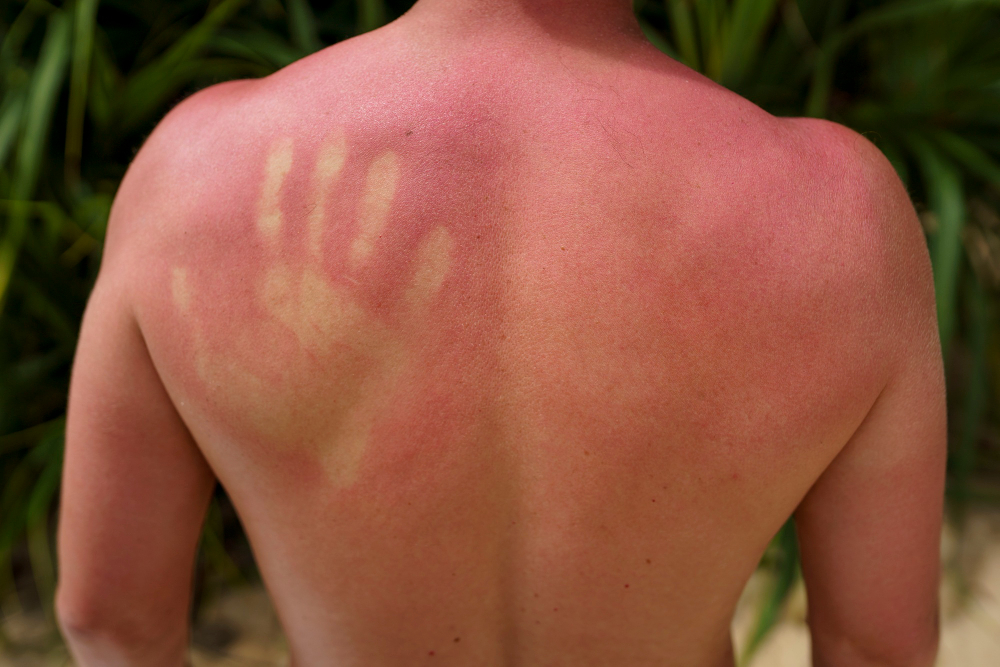
The symptoms of sun poisoning can vary in severity, but common indicators include:
- Severe Redness: Unlike mild sunburn, sun poisoning causes intense redness that covers a larger area of the skin.
- Blisters: Painful blisters filled with clear fluid may appear on the affected skin.
- Itching: The affected area can become extremely itchy and uncomfortable.
- Swelling: Swelling and inflammation are common reactions to sun poisoning.
- Headache and Fever: In more severe cases, individuals might experience headaches and fever due to the body’s response to the inflammation.
Sun Poisoning vs. Sunburn: How to Know the Difference

Sun poisoning and sunburn are words people sometimes mix up, but they mean different things.
When you get sunburned, it’s the top layers of your skin that are affected. On the other hand, sun poisoning goes even deeper, reaching the layers underneath and causing a stronger reaction.
Sun poisoning can lead to blisters and stronger swelling. If you have fair skin, you might be more prone to these issues. Also, if you’re wondering how to get rid of sunburn quickly, some tips might help.
Treatments for Sun Poisoning
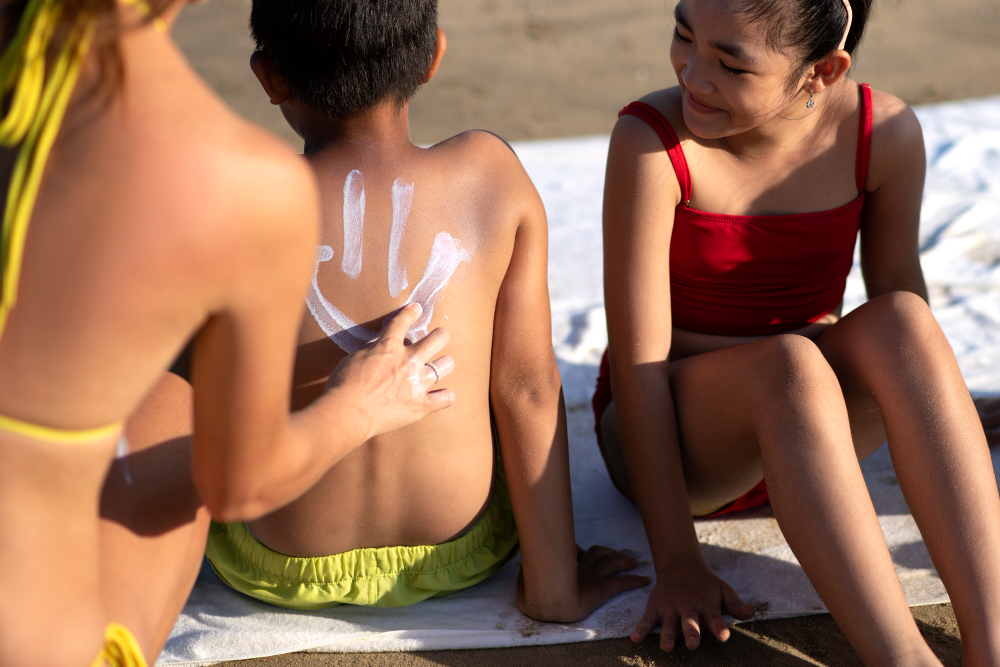
When dealing with sun poisoning, it’s vital to act promptly to ease discomfort and avoid additional problems. Here are some useful ways to treat sun poisoning:
Use aloe vera
Aloe vera is well-known for its calming effects. Putting aloe vera gel on exposed skin can help make the skin cooler, lessen swelling, and support the healing process.
Consider milk compresses
Milk compresses are a traditional remedy that can relieve sun poisoning symptoms. Soak a cloth in cold milk and gently apply it to the affected area to soothe the skin.
Take pain relievers
Over-the-counter pain relievers like ibuprofen or aspirin can help manage pain and reduce inflammation associated with sun poisoning.
Try a high dose of vitamin D
Vitamin D supplements can aid the skin’s healing process and boost its recovery from sun poisoning. Consult a healthcare professional before taking any supplements.
Drink plenty of water
Staying properly hydrated is crucial while you’re recovering. Drinking enough water helps your body remove harmful substances and supports the healing of your skin.
How To Prevent Sun Poisoning
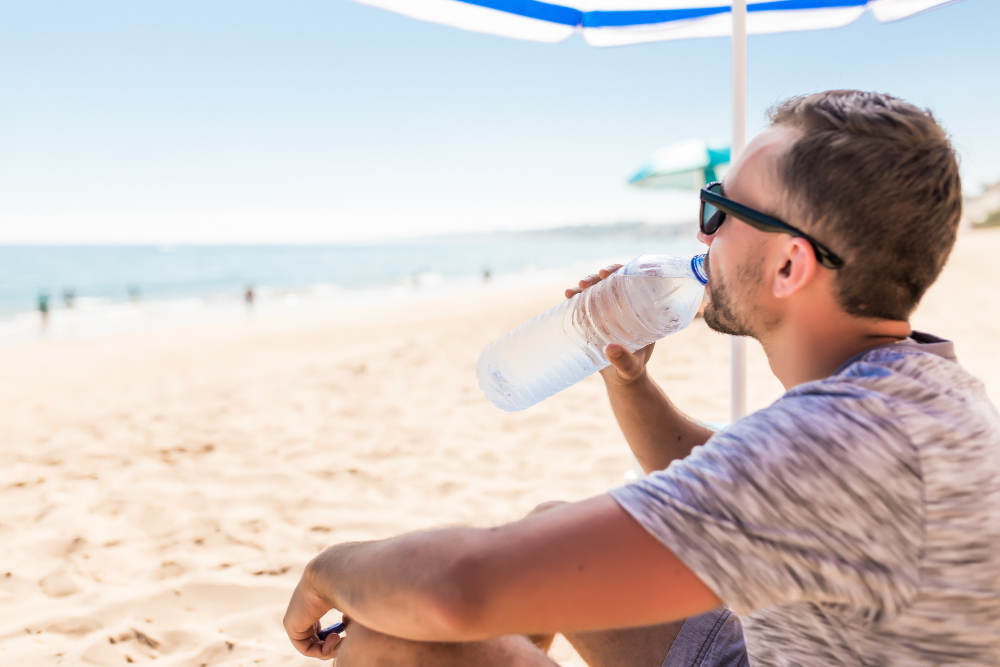
Prevention is key when it comes to sun poisoning. Follow these steps to minimize your risk:
- Use Sunscreen: Apply a broad-spectrum sunscreen with a high SPF before going outdoors.
- Seek Shade: Stay in the shade, especially during peak sun hours from 10 a.m. to 4 p.m.
- Wear Protective Clothing: Opt for lightweight, long-sleeved clothing, wide-brimmed hats, and sunglasses.
- Stay Hydrated: Drink plenty of water to keep your skin and body hydrated.
Frequently Asked Questions
Can sun poisoning cause complications?
Yes, sun poisoning can lead to severe complications if left untreated. It can result in infection, permanent skin damage, and an increased risk of skin cancer.
Who gets sun poisoning?
Anyone can get sun poisoning, but fair-skinned individuals, children, and people with a history of sunburn are more susceptible.
Does Benadryl help with sun poisoning?
Benadryl can provide relief from itching caused by sun poisoning. However, it is essential to consult a healthcare professional before using any medication.
Conclusion
Treating sun poisoning involves using soothing things, managing pain, and doing things to stop it from happening again. If you know how sun poisoning differs from sunburn, can tell when you have it, and act fast, you can get better faster and lower the chances of problems.
Always remember, stopping it before it starts is important—keep your skin safe from harmful sun rays and prioritize your skin’s health to do your hobbies in the sun without harm.


